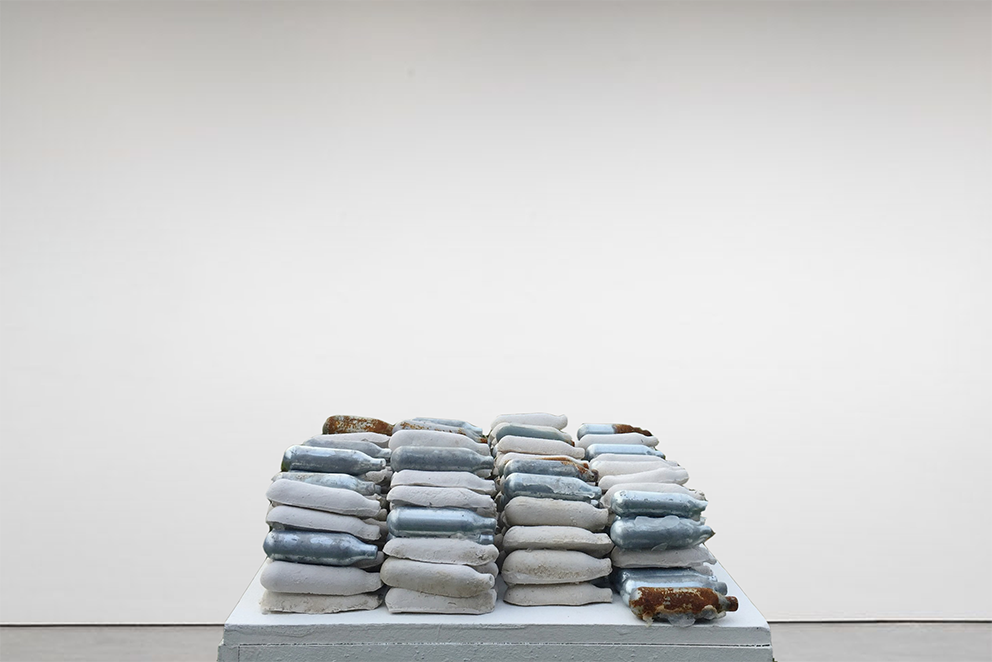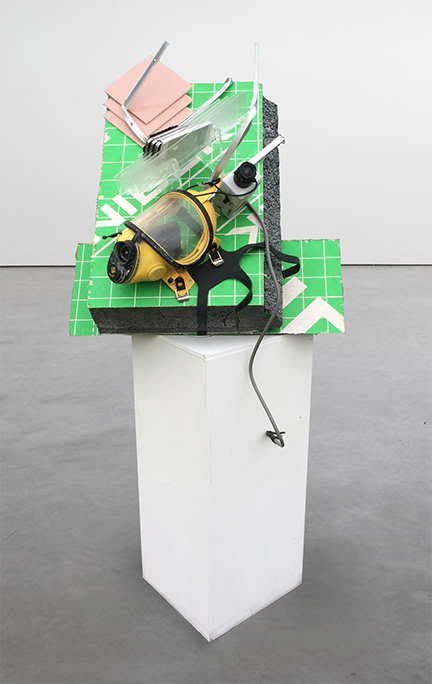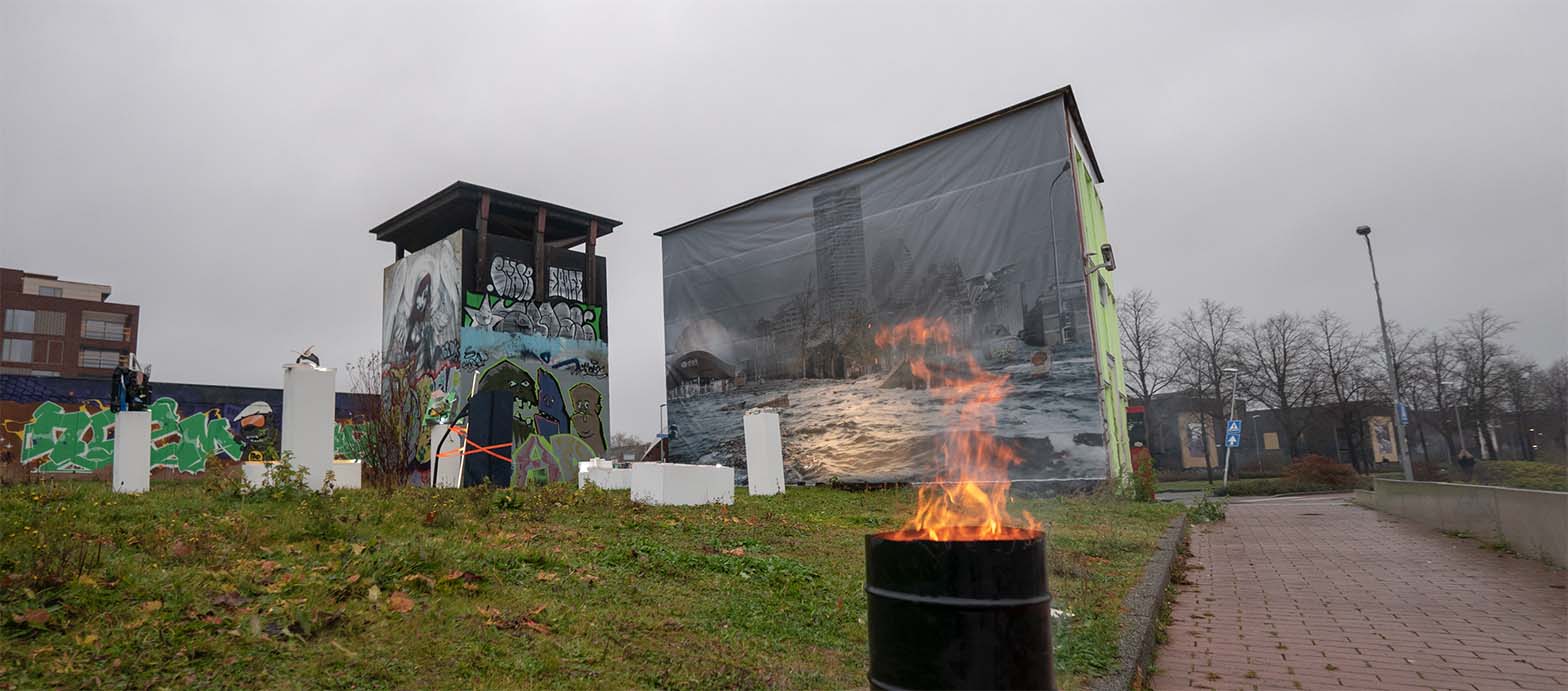In Loving Memory is an ongoing project by Nadine Rotem-Stibbe & Ryan Cherewaty. This project investigates possible futures due to climate change. Their research delves across the spectrum of this phenomenon, as the causes and effects reach into every aspect of contemporary society. The outcome of this work seeks to reach a broad demographic, and the formal results range from installation, video, image and community engagement.
Nadine is a Paris based artist, graphic designer and researcher. Her multimedia practice explores contemporary issues, ranging from climate change, to digital identity and privacy. Despite, or perhaps because of, the gravity of the topics she explores, she always makes sure to add a touch of cynicism and humour to her work. Regardless of the medium, be it paper, screen, or on the street, her projects engage with the world we all live in and share.
Ryan is a media artist from Toronto Canada currently based in Rotterdam. He works mainly in video, CGI and installation. His work celebrates and critiques contemporary experience. Inspired by the rich contradictions that technology presents, he engages with the relationship of digital media to individual consciousness and social and cultural memory, and how this ecology affects our physical reality. Persistent themes include the paradoxes of modernity, tech as myth and magic, and the dissolving boundaries between the virtual and the real.
The earth is heating up due to human activities. Ecological catastrophes are already happening across the globe. In Loving Memory imagines a narrative in the near future where archaeologists excavate man-made, mass-produced, ‘throwaway’ objects to determine their possible function. The narrative unfolds as an exhibition in a public space, with a billboard portraying the surrounding area with distressing images of flooding, thanks to the rise in sea level. While dwelling in the ‘current’ uninhabitable flooded lands, this project creates a space that invites people to ‘commemorate’ the year 2020. The site was free for all visitors. The installation was left on site to be vandalised, broken or naturally eroded.
Narrative:
A large cache of archaeological objects were uncovered in the transeuropa flood plain. The artefacts uncovered offer an unprecedented look into the life of the human race in 2020, prior to the great cataclysms that we have witnessed in the last few decades. Particularly the profound obsession with objects created from the industrial processing of complex carbon chain polymers, ‘plastics’ – an industry that was a key factor in heavily increasing carbon dioxide in the atmosphere. It would seem this material afforded these peoples great luxury and the accumulation of personal wealth in a horrendously stratified society. These quotidian objects have survived extreme climate changes. What would have been waste for them, now offers us a glimpse into their perplexing culture. Ultimately, these factors led to their demise.






